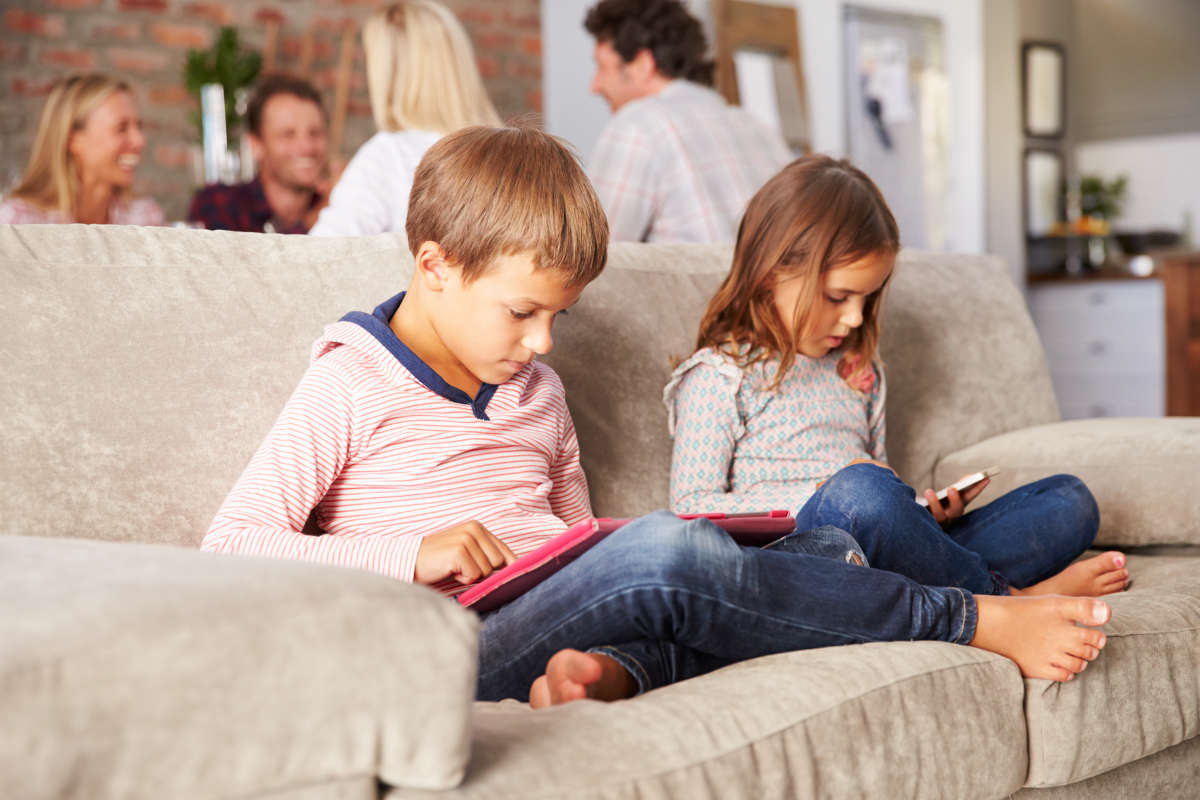But did you ever think about how you protect your kids on your own accounts? We often post to our own accounts without a second thought. We’ll post birth announcements with our newborn’s date of birth and full name. We can’t resist sharing first-day-of-school-photos, sports achievements, prom pics and, really, every other second of their lives. But, according to social media and cyber security expert, April C. Wright, all of those updates might be compromising our kids’ safety. The first issue with safety is what Wright calls “stranger danger.” “Posting a photo of your kid on social media is sort of like posting a sign at the mall with their picture, name, name of their school, their daily routine, and the sports/activities where they can be found,” she says. This is especially dangerous if you post a photo with a location. Everyone on the internet can see that your child takes a dance class at 6 p.m. at the local studio. Potential threats include identity theft, stalking, harassment and even kidnapping. What we share about our children can also affect that child’s future. “There is a common saying that ’the internet is forever’, meaning anything that is posted online is permanently stored somewhere,” says Wright. The risks don’t go away just by making sure your account is private and locked down to only friends. “As soon as another person is tagged, the tagged people’s friends can see it and the circle of people who can view that photo gets larger,” says Wright. And if you make your child’s photo your profile photo, that photo is still publicly viewable by anyone who looks at your profile. So what can we do to protect our kids’ safety on our own social media accounts? Here are a few tips:
1. Set Up a Private Album
Your best bet is to avoid using social media at all to update family and friends on your children’s activities and achievements. Instead, create a private album on a cloud drive or photo sharing site. Share it with trusted friends and family only.
2. Keep Your Child’s Future in Mind
If you do post on social media, be aware that anything you post may be shared with someone you don’t know at any point in time. “Don’t post anything online you wouldn’t want a stranger to see,” says Wright. Before you post, imagine your child’s future boss, spouse or friends seeing it. Then decide if it’s appropriate to post.
3. Watch Out for Your Profile Photo
This one’s an easy tip. Just avoid using a photo of your kids as your profile photo in all of your social media accounts. Remember, even if your account is private, everyone online can see your profile photo.
4. Avoid “Checking In”
Don’t check in or share your location, whether your kids are with you or not. Sharing your location with your kids tips people off to where they may hang out regularly. Checking in without them may clue predators into the fact that you’re not with them. Think about what’s in the background of your photos, too. “Little things can give away clues about a location or identity,” says Wright.
5. Set up Privacy Controls
If you must share a photo online, always set up and use privacy controls. Limit who can see photos and avoid tagging friends and family. But don’t rely on these controls. Wright warns that privacy controls can fail and pictures can end up in the wrong hands.
6. Be Careful Who You Friend
Don’t friend people you don’t know or trust. Do you really trust that one guy from elementary school you haven’t talked to in 25 years? Be really selective about who you let into your social media circle. You don’t have to go crazy and completely delete all of your social media accounts to keep your kids safe. Just be more aware of your social media habits. “It’s extremely important to understand the risks of sharing before we share, and be aware of the consequences of what we do, post and say on social media,” says Wright. We can then make smarter decisions going forward. Are you worried about your child being bullied, online or in school? Check out 11 Warning Signs Your Child Is Being Bullied.


